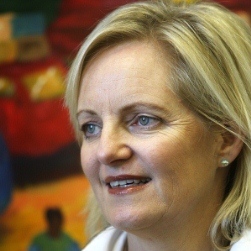
Lifestyle/Community

Let us never forget the horrors of Auschwitz
MARY KLUK
As an executive member of the World Jewish Congress, I had considered attending, but decided in the end to attend the event organised by the Durban Holocaust Centre. South African Jewry was represented by Ann Harris, and Mascha Schainberg, a survivor of Auschwitz now living in South Africa.
She attended as a guest of the World Jewish Congress and Steven Spielberg Shoah Foundation. The SAJBD was able to facilitate Mascha’s attendance through working with its contacts in the Department of Home Affairs to ensure that she was provided with the necessary travel documents.
We much appreciate how the authorities, in recognition of the special circumstances attached to this matter, so willingly assisted us in this regard.
Mascha was one of 300 survivors of Auschwitz from around the world who, as a joint venture of the WJC and Shoah Foundation, were brought out to attend the ceremony. It is sobering to reflect that at the 60th anniversary gathering, 1 500 survivors were present; 10 years from now, a bare handful will remain.
Those survivors who remain need – indeed, are owed – the firm assurance from all of us that their stories will not be forgotten when they are no longer among us. It is therefore incumbent on us all to accept upon ourselves the sacred duty of remembrance and of passing their testimonies on to the next generation.
When remembering, and teaching about, the Holocaust, it is crucial to emphasise that Auschwitz was the culmination, not the starting point, of Nazi genocide. That process began not with deeds but with words.
Before being deprived of their rights, livelihoods and finally their lives, Jews were systematically demonised – in the political arena, media, academia and every possible forum. As a result, they came to be regarded as a disloyal, destructive element to be shunned and despised.
Once this view had sufficiently taken root, it became possible to move on to the next step, which was to deprive Jews of their civil liberties and economic freedoms. Physical attacks (notably Kristallnacht) came next and finally the onset of programmatic mass killing.
That hateful words can all too quickly lead to hateful deeds is an enduring lesson of the Shoah, and one that has never been more relevant than in the times we live in. Both in our own country, and in many other parts of the world, we are witnessing a continual spewing of vitriol against any given target.
That, indeed, is one of the paradoxes of living in a democracy: Freedom of expression is a core value, but all too often it serves to expose the underbelly of hatred and prejudice. It is incumbent on those who abhor bigotry in all its forms – and we can safely affirm that they constitute the great majority – to denounce it and to continually educate themselves and upcoming generations not only about how evil, but also how fundamentally irrational it is.
Relating to this, there has been a spate of violent attacks against foreign nationals in Gauteng. The Board (refer to our Facebook) has condemned these repugnant acts and appealed to the Jewish community to contribute to a fund it is setting up to assist the victims.
The details are: Account name – SA Jewish Board of Deputies, Standard Bank Killarney, Account number: 200305190, Reference: Your name+Xenophobia. Section 18A Certificates available on request.
Listen to Charisse Zeifert on Jewish Board Talk, 101




